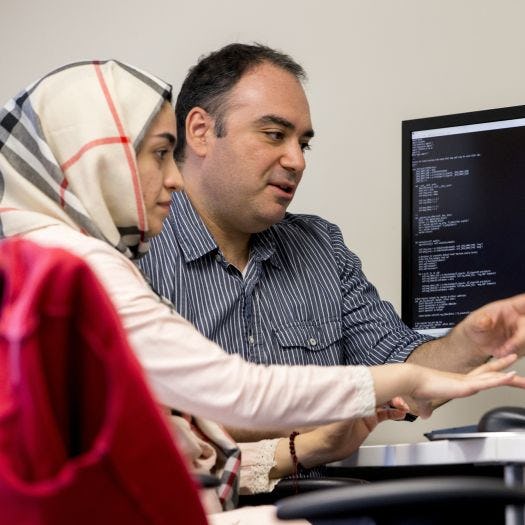
Center for the Advancement of Secure Systems and Information Assurance (CASSIA)
The Center for the Advancement of Secure Systems and Information Assurance is a nexus for:
Basic and applied research in secure, dependable, and sustainable computing and communications systems
Exploration of the implications to information assurance and cybersecurity of ubiquitous computing and other visionary scenarios
Anticipation of cultural evolution resulting from the inception of innovative technologies such as social networking
Public-private partnerships for threat assessment, response, technology development and deployment; entrepreneurship and transfer of security and IA-related technology to the IT industry
Education of professionals in security technologies, policy, and commerce
Education of non-technical users: children, parents, teachers, small-business owners

Academic Programs
Stevens Institute of Technology offers a variety of programs related to cybersecurity both at the undergraduate and graduate level. See what's available for you.

Scholarships
Start your cybersecurity career with the U.S. Government through the CyberCorps®: Scholarship For Service (SFS) program. CyberCorps® SFS is a unique program designed to increase and strengthen the cadre of information assurance professionals that protect the government's critical information infrastructure and other sectors important to the economy and national security.
CASSIA is a Center of Academic Excellence
Since 2003, Stevens Institute of Technology is designated as a National Center of Academic Excellence in Cyber Defense (CAE-CD) (formerly Information Assurance Education CAE/IAE). In 2008, Stevens Institute of Technology was one of the first 23 institutions obtaining the designation as National Center of Academic Excellence in Cyber Research (CAE-R).
Today, there are more than 300 schools in 48 states, the Commonwealth of Puerto Rico and the District of Columbia holding a designation. In New Jersey, there are currently eight institutions that have obtained a designation, with Stevens Institute of Technology being one of only two institutions with both designations.
Contact Information:
Professor Susanne Wetzel
Department of Computer Science




